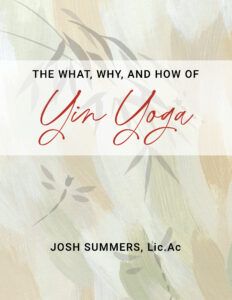The theme of Wise Livelihood is something that I think about, a lot. Again and again, it raises its head, like a koan. What does a life of integrity and purpose look like?
Back in college, I didn’t have a clue what to do with myself. I could see my peers ramping up towards respectable careers in medicine, law, business, and education, and none of it had any appeal (with the exception of education). And after a rather unproductive few sessions with a career coach (and the obligatory Myers-Briggs test), I went off to Asia, in the hope that answers and inclinations would reveal themselves (they didn’t). In Asia I came across the Buddha’s teachings on the Eightfold Path, and I remember feeling very inspired by the principle of aligning one’s livelihood with one’s spiritual aims. Back then, I used to think that the choice of vocation was the main thing. Do something of service, of value, of contribution. A lot of sleepless nights went into trying to make it fit the Buddha’s kosher model of employment.
As Bhikkhu Bodhi summarizes: “One should acquire it [wealth] only by legal means, not illegally; one should acquire it peacefully, without coercion or violence; one should acquire it honestly, not by trickery or deceit; and one should acquire it in ways which do not entail harm and suffering for others.”
So with these guidelines, my dreams of becoming a mobster or con-man were dashed. But still, a fair bit of ambiguity remained.
The more I listened to my teachers, the more it became clear, that just as in meditation, the important issue was not so much what one is experiencing but how one is relating to it. With livelihood, it wasn’t the gig, per se, but the relationship to the gig. Or as Howard Thurman said, “Don’t ask what the world needs. Ask what makes you come alive, and go do it. What the world needs is people who have come alive.”
So if aliveness is a precondition for Wise Livelihood, then training ourselves to be fully conscious, fully awake, fully mindful becomes an integral part of whatever calling we answer. David Foster Wallace summed it up with exquisite eloquence in his Kenyon College commencement address: “The really important kind of freedom involves attention, and awareness, and discipline, and effort, and being able truly to care about other people and to sacrifice for them, over and over, in myriad petty little unsexy ways, every day. That is real freedom. The alternative is unconsciousness, the default-setting, the ‘rat race’ — the constant gnawing sense of having had and lost some infinite thing.”
A recent film adaptation of Wallace’s speech is making the rounds right now. I highly encourage you to take ten minutes and give it a view:
Originally published on May 20, 2013
Practice Opportunities:

